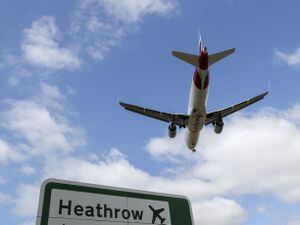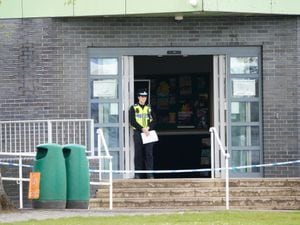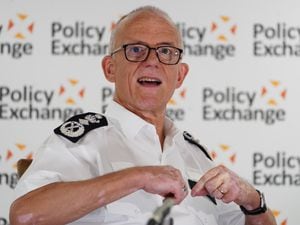Shell, Rolls-Royce and Airbus call for swifter movement on green jet fuel
Rolls chief executive Warren East said all the company’s aircraft engines will be able to run on pure sustainable fuel by 2023.

The boss of Rolls-Royce has joined Shell and Airbus to call for more work to reduce the carbon impact of flying.
Warren East, chief executive of the aircraft engine maker, said that, to avoid aviation becoming an even bigger share of global emissions, the sector must move ahead of United Nations targets.
Under current UN plans, at least 10% of fuel used in global aviation should be sustainable by 2030.
Sustainable aviation fuel (SAF) takes many forms, but is often produced from farm crops. It can be blended into traditional jet fuel.
Mr East said: “Flying generates between 2% and 3% of global emissions but, as easier-to-abate sectors decarbonise, that proportion will increase, so shortening aviation’s journey to net zero with action in the opening phase of this ‘Decisive Decade’ would be a huge win for the world.
“However, we will only create the focus and momentum required to achieve this if we ratchet our collective ambition beyond the current target of achieving 10% SAF usage by 2030.”
Alongside his statement, Rolls-Royce committed to ensuring that all its Trent engines, which propel many of the world’s planes, will be able to run purely on sustainable fuel by 2023.
Meanwhile, Airbus said all its planes can currently use fuel which is a blend of half sustainable and half traditional. By the end of the decade they will be able to handle pure renewable fuels.
Shell, which makes the fuel, says it will increase production to two million tonnes per year by 2025 – 10 times the total produced globally today.
However, it is still a small portion of the approximately 290 million tonnes that the aviation sector used in 2019.
Sustainable fuel makes up only around 0.05% of total jet fuel, according to EU statistics.
And while engine and plane makers might be ensuring their aircraft are ready for sustainable fuels, it is still airlines that have to pay for it.
The asking price for sustainable fuel is estimated to be around eight times higher than traditional fuels.
“The aviation sector is moving towards net zero, but we need to accelerate,” said Shell’s president of global aviation, Anna Mascolo.
Airbus chief technical officer Sabine Klauke said: “There are multiple solutions to catalyse the global transition to decarbonised aviation, be it developing and maturing new technology pathways, seeking improvements in operations and infrastructure, and committing to an industry-wide scale-up in the uptake and production of sustainable aviation fuels.”





